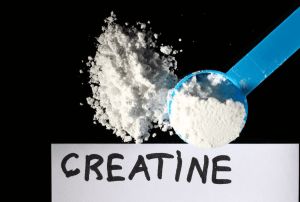The Lyon Diet Heart Study looked at the effects of a Mediterranean diet on patients who survived a heart attack (myocardial infarction) between 1988 and 1992. Patients were 70 years old, clinically stable, with no medical or social conditions that would limit their ability to participate in a dietary trial.
A “Half Blinded” Study
To avoid bias, the diet group and their doctors were not fully informed that they were participating in a dietary randomized controlled trial. Patients were randomly assigned to with intervention (Mediterranean diet, or “Medi Diet”) or control (regular diet). The Mediterranean diet is a diet inspired by the eating habits in Greece, Italy, and Spain. It emphasizes fish, root vegetables, green vegetables, fruit and bread. Poultry is favored over red meat, and margarine is used rather than butter and cream. For salads and food preparation, rapeseed oil and olive oil is used. Patients randomized to the Medi Diet received a 1-hour counseling session on how to stick to change their diet.
The Results: Too Good for the Medi Diet!
The study lasted 46 months and was interrupted early due to the “regular diet” group patients having much worse outcomes! The Medi Diet group ended up eating 140 calories less daily, with 30% of calories from fat, 8% from saturated fat, 13% from monounsaturated fat, 5% from polyunsaturated fat, and 203 mg/d of cholesterol. Heart disease was measured in many different ways. Death from heart disease, heart attacks and other causes that could lead up to hospital admissions, such as chest pain (angina), reduced heart function, stroke, blood clots (embolisms), and treatment complications.
Grouping all of the outcomes above, there were 180 events in the regular diet group, but only 95 events in the Medi Diet group! That’s almost a HALVED event-rate after 4 months on a Medi Diet. The statistics (confidence interval) reveal that the risk of heart disease events might be somewhere between 26% and 62% compared to the regular diet group! Looking at just heart attacks (both deadly, and non-deadly), the Medi Diet group had a risk of 28% compared to the regular diet group (CI 0.15 – 0.53).
Even with a Good Diet, You Should Still Quit Smoking and Exercise!
In addition, analysis revealed that the Medi Diet doesn’t affect the efficacy of other risk factors for heart disease, meaning that the diet group could reduce their risk further by the “standard” methods of quitting smoking, exercising and lowering blood pressure.
Linolenic Acid – an Omega-3
So the Medi Diet Looks Promising, but WHAT is causing this benefit? This question is more complicated, and while many might think it’s the lowered saturated fats, the Medi Diet differs in many more ways compared to a regular diet, making it hard to know what is driving the heart-protecting effects.
By various statistical methods, scientists found that a certain type of fat called linolenic acid was linked to reduced risk of heart attacks, lowering the relative risk somewhere between 16% and 95% (yeah we know, not that specific). This means that people eating more linolenic acid seem to get less heart attacks, even after adjusting for differences in age, sex, smoking, total cholesterol, blood pressure, white blood cell count and aspirin use between those eating and not eating linolenic acid. You might not recognize linolenic acid, but you might be more familiar with omega-3 fatty acids? Linolenic acids IS an omega-3 fatty acid, which is why the Lyon heart study has contributed to the idea that omega-3 fatty acids are heart-healthy.
Total Cholesterol and White Blood Cell Count as Predictors?
Apart from the diet, the study found two predictors possibly linked of having a new heart attack: white blood cell count and total blood cholesterol levels measured two months after the heart attack. A leukocyte count of 9 000 000 000/L increased the relative risk by 160-290%, while each increase of 1 mmol/L of total cholesterol increased the relative risk by 20-30%.
Another interesting point is that several years after the counselling session, most patients were still closely following the Mediterranean diet recommended to them. This shows that new habits CAN be made and sustained, but in the case having had a heart attack probably had a huge influence on these patients’ motivation to stick to their new diet.
Take Home
All in all, the Lyon Diet Heart Study is an interesting, but old study. It’s results may not be as relevant today, with new and improved heart disease treatment available. If you want to protect your heart, and haven’t made much of an effort to improve your diet, considering a Medi Diet is definitely a good idea!
Article by Artin Entezarjou, M.D., PhD(s), EBT.
Source:
Lorgeril et al. Mediterranean Diet, Traditional Risk Factors, and the Rate of Cardiovascular Complications After Myocardial Infarction – Final Report of the Lyon Diet Heart Study. https://doi.org/10.1161/01.CIR.99.6.779








